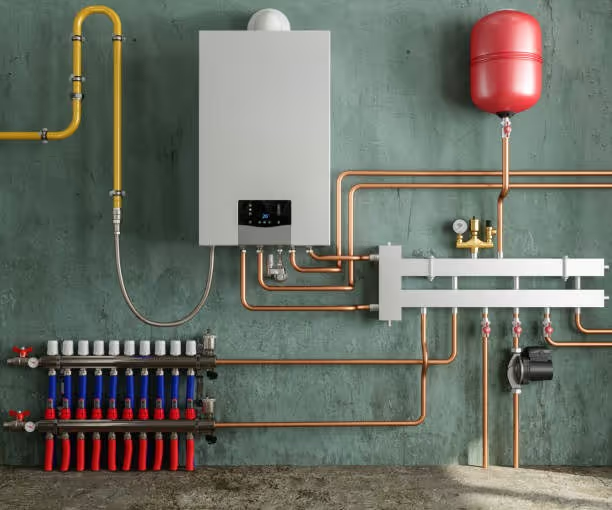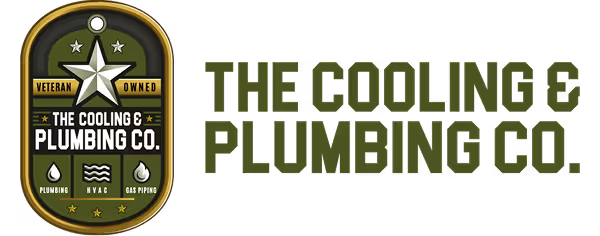Professional Water Heater Installation in Phoenix, AZ
A sudden loss of hot water disrupts your entire household, turning simple daily routines into frustrating challenges. Whether you're dealing with a leaking tank, lukewarm showers, or a unit that has simply reached the end of its life, securing a reliable source of hot water is a top priority. A professional water heater installation ensures your home is equipped with a system that is not only effective and efficient but also installed with the highest standards of safety and local code compliance in mind for your Phoenix home.
Choosing and installing a new water heater is a significant investment in your home’s comfort and infrastructure. It involves more than just swapping out an old appliance; it requires careful consideration of your family's needs, your home's specifications, and the unique environmental factors of the Phoenix area. A proper installation is the foundation for years of dependable performance, energy savings, and peace of mind.

Selecting the Right Water Heater for Your Home
The first step in any new installation is choosing the right type of water heater. The two primary options available to homeowners each offer distinct advantages, and the best choice depends on your budget, hot water usage, and long-term energy efficiency goals.
Traditional Storage Tank Water Heaters
This is the most common type of water heater found in homes across the country. A storage tank unit features an insulated tank that holds and continuously heats a specific volume of water, typically between 30 and 80 gallons. When you turn on a hot water tap, hot water is drawn from the top of the tank.
- Key Benefits: The primary advantage of a traditional tank water heater is its lower upfront purchase and installation cost. The technology is well-established, and replacing an existing tank unit with a similar model is often a straightforward process.
- Considerations: Because the tank constantly reheats water to maintain a set temperature, it results in standby heat loss, which can lead to higher energy consumption. The amount of hot water is also limited to the tank's capacity; once it's depleted, you must wait for the tank to refill and heat a new supply.
Tankless Water Heaters (On-Demand)
Tankless water heaters represent a modern, highly efficient approach to water heating. Instead of storing water, these compact units use powerful gas burners or electric elements to heat water instantly as it flows through the system.
- Key Benefits: The most significant advantage is an endless supply of hot water—you never have to worry about running out mid-shower. They are also substantially more energy-efficient, as they only consume energy when you need hot water, potentially reducing utility bills. Tankless models have a much longer lifespan (often 20 years or more) and a small, space-saving design.
- Considerations: The initial investment for a tankless water heater is higher than for a traditional tank. Installation can also be more complex, sometimes requiring upgrades to your home’s gas lines, electrical wiring, or ventilation system to support the unit’s power requirements.
Critical Factors for Phoenix Water Heater Installations
Beyond choosing between a tank and tankless model, several local factors unique to the Phoenix area must be considered for a successful installation.
- Proper Sizing: An undersized unit will constantly struggle to meet your needs, while an oversized one wastes energy and money. For tank models, we consider the First Hour Rating (FHR), which indicates how much hot water the unit can produce in one hour. For tankless models, we assess the required Gallons Per Minute (GPM) flow rate based on the number of fixtures you might use simultaneously.
- Hard Water Impact: The Phoenix area is known for its extremely hard water, which is rich in minerals like calcium and magnesium. Over time, these minerals can build up inside a water heater, forming scale that reduces efficiency, shortens the unit's lifespan, and can lead to premature failure. Professional installation includes a discussion about mitigating these effects through regular maintenance, flushing, or pairing the unit with a water softening system.
- Outdoor Installations: Many Arizona homes have water heaters installed in the garage or an exterior closet. These installations require specific considerations to protect the unit from the intense summer sun and ensure proper ventilation, especially for gas models. A professional ensures the unit is installed correctly to withstand the elements and operate safely.
The Professional Installation Process: What to Expect
Our installation process is designed to be thorough, safe, and transparent, ensuring your new system performs flawlessly from day one.
- Initial Assessment and Consultation: We begin by discussing your hot water needs and evaluating your current plumbing, electrical, and gas systems to recommend the best-sized and most appropriate water heater for your home.
- Safe Removal of the Old Unit: Our technicians will safely disconnect and drain your old water heater, then remove it from your property for proper and responsible disposal.
- Expert Installation: The new unit is carefully placed and professionally connected. This includes securing all water lines, connecting the gas or electrical supply according to strict safety protocols, and installing proper venting for gas models to ensure exhaust fumes are directed safely outside.
- Code Compliance and Safety Checks: We meticulously follow all local Phoenix and Arizona state plumbing codes. After installation, we conduct rigorous testing for leaks, check the water pressure, and calibrate the temperature. For gas units, we perform comprehensive checks for gas leaks to ensure your family's safety.
- Final Walkthrough: Once the installation is complete and tested, we walk you through the operation of your new water heater, explain any maintenance requirements, and ensure the work area is left clean.
The Value of a Professional vs. DIY
While a DIY approach may seem tempting, installing a water heater is a complex task that involves high-voltage electricity, natural gas lines, and critical plumbing connections. An improper installation can lead to dangerous gas leaks, carbon monoxide exposure, significant water damage, or electrical hazards. Furthermore, most manufacturers’ warranties are voided if the unit is not installed by a licensed professional. Relying on a certified technician guarantees that the job is done right, ensuring your system's safety, efficiency, and longevity.






